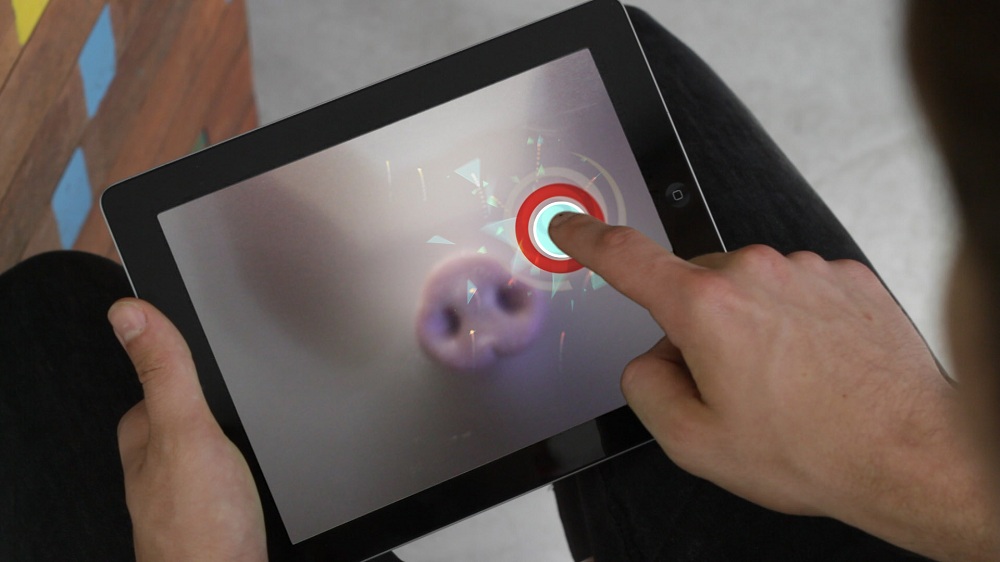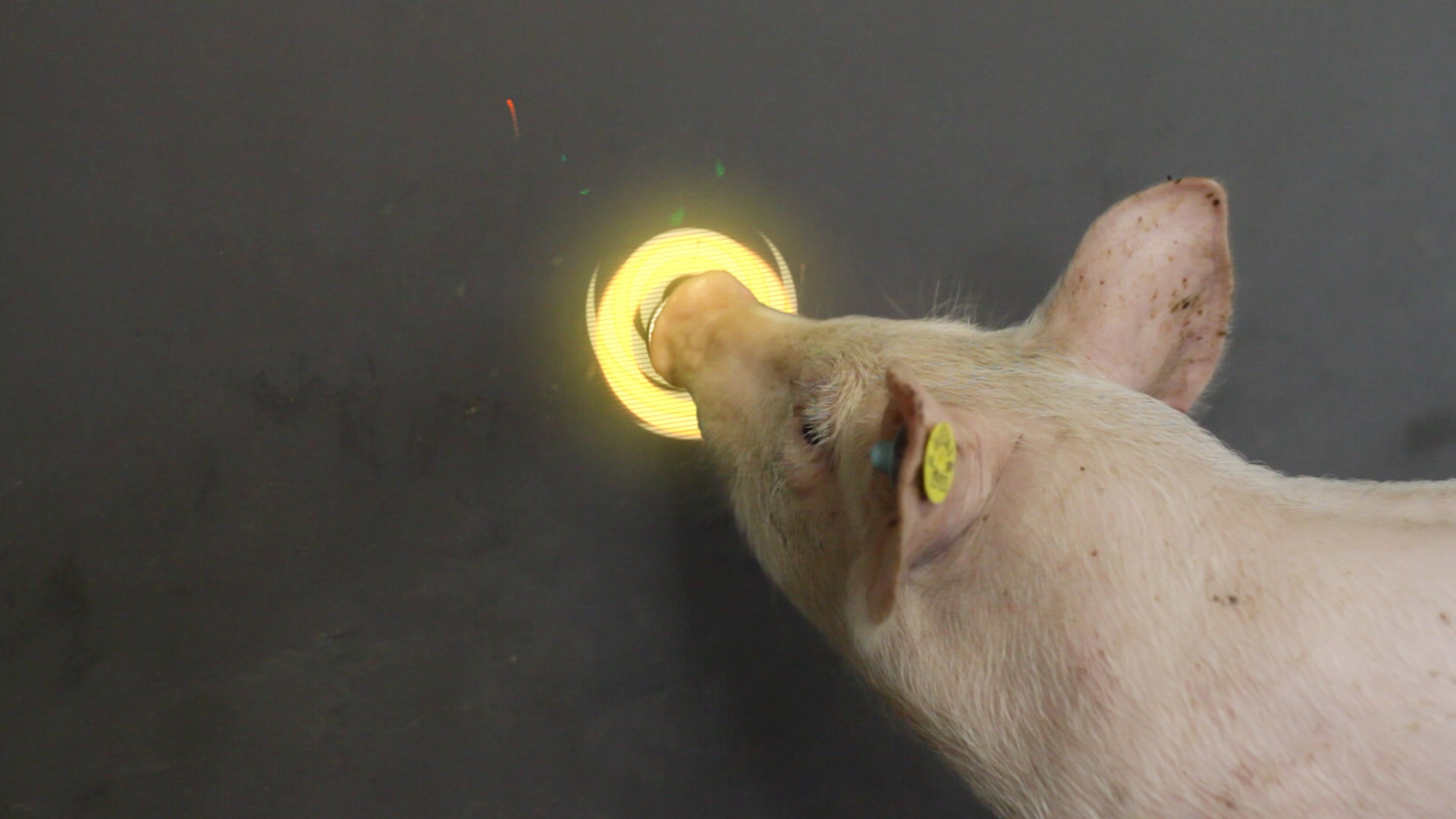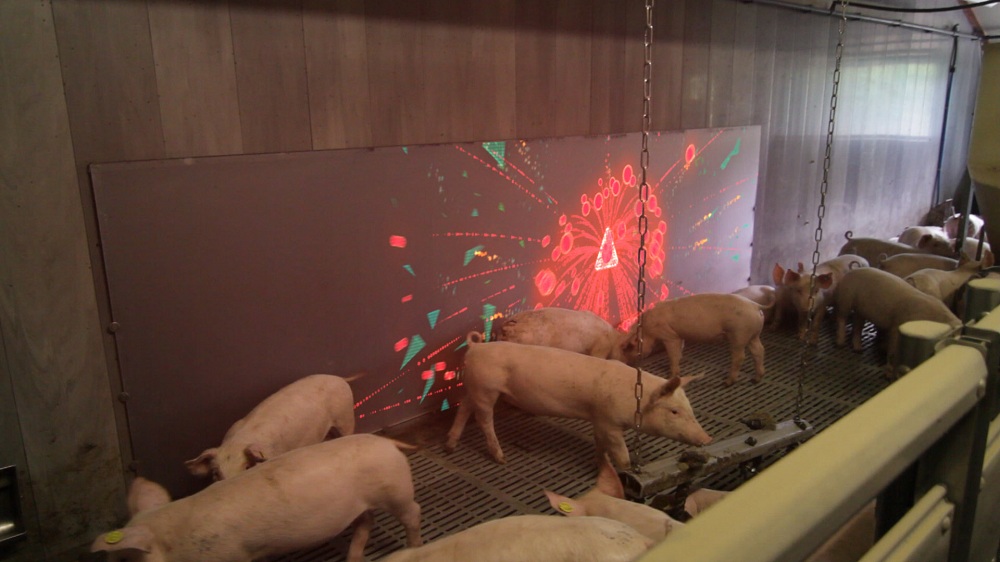Real Farmville: iPad Game Would Let Pigs Play with Humans

Apple's iPad has tickled the fancy of not only human babies, but also pet cats and dogs who nose around or swipe at the tablet's interactive screen. A new iPad game concept may go a step farther by giving farm pigs the chance to play with humans and relieve their boredom.
Dutch designers came up with the "Pig Chase" game in the spirit of European laws that require pig farmers to provide toys — such as a plastic ball hanging from a chain on the wall — to prevent boredom, aggression and tail-biting among pigs. But Clemens Driessen, an applied philosopher at Wageningen University in the Netherlands, hoped to create something more enriching when he sat down to talk with farmers in 2009.
One farmer eventually suggested painting a forest on the walls of the pens. Then she came up with a second idea that blurred the social boundaries between humans and animals.

"Or give them what our children play with; they just got their [Nintendo] Wii," she said.
The wall display and gaming technology ideas led Driessen and his game designer colleagues at the Utrecht School of the Arts in the Netherlands to create a video sketch of the "Pig Chase" concept. They found encouragement in the enthusiasm of the pig farmers, as well as the curiosity of pigs snuffling around project light effects.
Pigs would play the game on a large, touch-sensitive display on the wall of their pen. A human-controlled ball of light on the wall tempts them to touch it with their snout; rewarding virtual sparks fly from the light if that happens.
Humans would move the balls of light around using their finger on an iPad screen. They could also see the snouts of pig players on their tablet as though the animals were on the other side of a transparent window.
Sign up for the Live Science daily newsletter now
Get the world’s most fascinating discoveries delivered straight to your inbox.
If both the human ball of light and the pig snout move through a triangle-shaped goal, huge virtual fireworks would reward the effort. Humans could also see how many goals they notch up during a play session on the game's scoreboards.

Pigs are considered intelligent animals, said Suzanne Held, a research fellow in animal behavior at the University of Bristol in the UK who did not take part in the Dutch project. She added that even if pigs don't match the intelligence of primates, the human definitions of intelligence tend to skew toward social behaviors shared by humans.
"When people compare the intelligence of different species, it's usually based on how many human characteristics that the animals possess," Held told InnovationNewsDaily.
It's clear that pigs won't be moving from video games to dressing up like humans and walking on two legs, as envisioned in the George Orwell classic "Animal Farm." But Driessen and his colleagues hope the "Pig Chase" project might boost societal debates about animal farming, or even change moral views of animal welfare over time.
This story was provided by InnovationNewsDaily, a sister site to Live Science. You can follow InnovationNewsDaily Senior Writer Jeremy Hsu on Twitter @ScienceHsu. Follow InnovationNewsDaily on Twitter @News_Innovation, or on Facebook.










